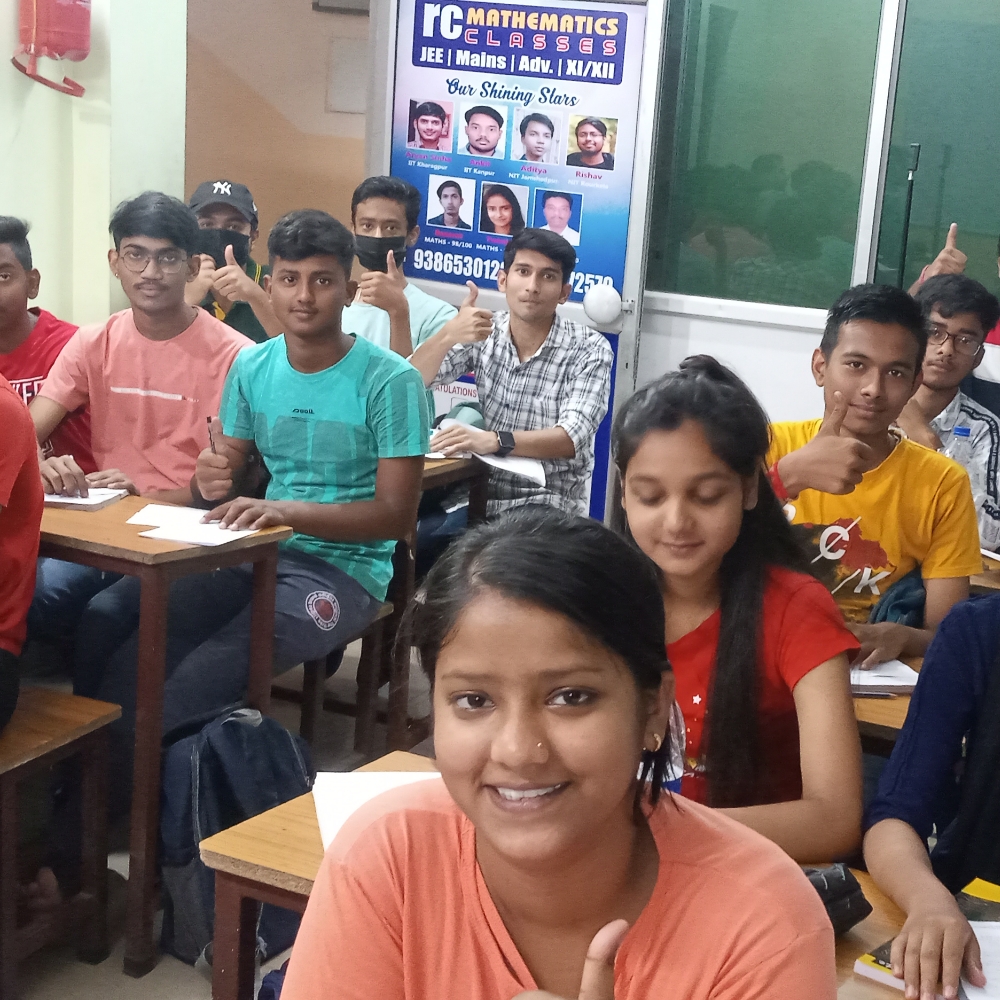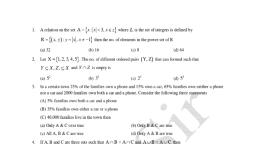Question 1 :
If a<sub>1</sub>, a<sub>2</sub>, a<sub>3</sub>, .are in A.P. such that a<sub>1</sub> + a<sub>5</sub> + a<sub>10</sub> + a<sub>15</sub> + a<sub>20</sub> + a<sub>24</sub> = 225, then a<sub>1</sub> + a<sub>2</sub> + a<sub>3</sub> + + a<sub>23</sub> + a<sub>24</sub> is equal to
Question 2 :
If a, b,c are in A.P., then <img style='object-fit:contain' src='https://storage.googleapis.com/teachmint/question_assets/JEE%20Main/5e87287e75ed294f2c7c4c5a' height='33' width='63' > will be in
Question 3 :
If <img style='object-fit:contain' src='https://storage.googleapis.com/teachmint/question_assets/JEE%20Main/5e8728ff19f8d44d3a1806ab' height='39' width='172' >, then the value of n is
Question 5 :
$S = {3^{10}} + {3^9} + \frac{{{3^9}}}{4} + \frac{{{3^7}}}{2} + \frac{{{{5.3}^6}}}{{16}} + \frac{{{3^2}}}{{16}} + \frac{{{{7.3}^4}}}{{64}} + .........$ upto infinite terms, then $\left( {\frac{{25}}{{36}}} \right)S$ equal to
Question 6 :
Let two numbers have A.M. = 9 & G.M. = 4. Then these numbers are roots of equation -
Question 7 :
In A.P. 3 + 7 + 11 + 15 + . upto 30 terms, 12th term from end is-
Question 8 :
Find sum of 11 terms of on A.P. whose middle term = 30 is -
Question 9 :
The sum of n terms of the series 1<sup>2</sup> - 2<sup>2</sup> + 3<sup>2</sup> - 4<sup>2</sup> + 5<sup>2</sup> - 6<sup>2</sup>+ ..... is -
Question 11 :
If a, b, c, d, e, f are A.M.'s between 2 and 12, then <img style='object-fit:contain' src='https://storage.googleapis.com/teachmint/question_assets/JEE%20Main/5e87287a75ed294f2c7c4c56' height='18' width='99' > is equal to
Question 12 :
If roots of equation x<sup>3</sup> - 12x<sup>2</sup> + 39x - 28 = 0 are in A.P. then common difference =
Question 13 :
Let a, b, c form a G.P. of common ratio r, with 0 < r < 1. If a, 2b, 3c form an A.P., then r equals -
Question 14 :
If a, b, c are three distinct numbers such that a, b, c are in A.P. and a, c-b, b-a are in G.P. then the ratio a : b: c equals
Question 15 :
If x, y, z are in A.P. then the value of (x + y - z) (y + z - x) is
Question 16 :
The sum of all two digit numbers which when divided by 4, yield unity as remainder is -
Question 17 :
The sum $1+\dfrac { 2 }{ x } +\dfrac { 4 }{ { x }^{ 2 } } +\dfrac { 8 }{ { x }^{ 3 } } +....\left( up\ to\ \infty \right) ,x\neq 0,$ is finite if<span id="_wysihtml5-undo" class="_wysihtml5-temp"></span>
Question 19 :
If a, b, c are in AP ; then 2<sup>ax + 1</sup>, 2<sup>bx + 1</sup>, 2<sup>cx + 1</sup>, x ≠ 0 are in -
Question 20 :
If S<sub>n</sub> = n<sup>2</sup> - 2n for an A.P. then T<sub>5</sub> of this A.P. is-
Question 21 :
Sum of the series 1 + 2.2 + 3.2<sup>2</sup> + 4.2<sup>3</sup>+ ....+100.2<sup>99</sup> is -
Question 23 :
The four<sup>th</sup>, seven<sup>th</sup> and ten<sup>th</sup> terms of a G.P. are p, q and r respectively, then<sup> </sup>
Question 24 :
The coefficient of x<sup>99</sup> in (x -1) (x-2) (x-3) (x - 100) is
Question 25 :
The sum of all two digit natural number which divided by '4' yield remainder is 1, is-
Question 26 :
In a GP, fifth term is 4 , then product of first nine terms is -
Question 28 :
If a, b, c, d, e are in A.P., then value of a - 4b + 6c - 4d + e =
Question 30 :
Sum of n terms of the series 12 + 16 + 24 + 40 +will be




































































